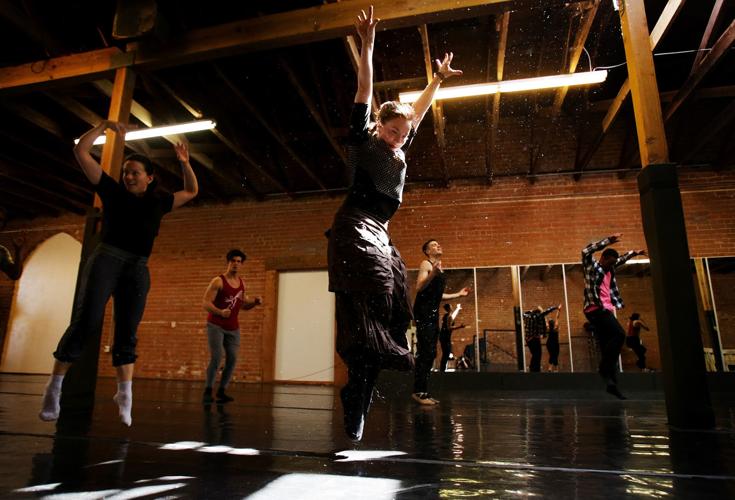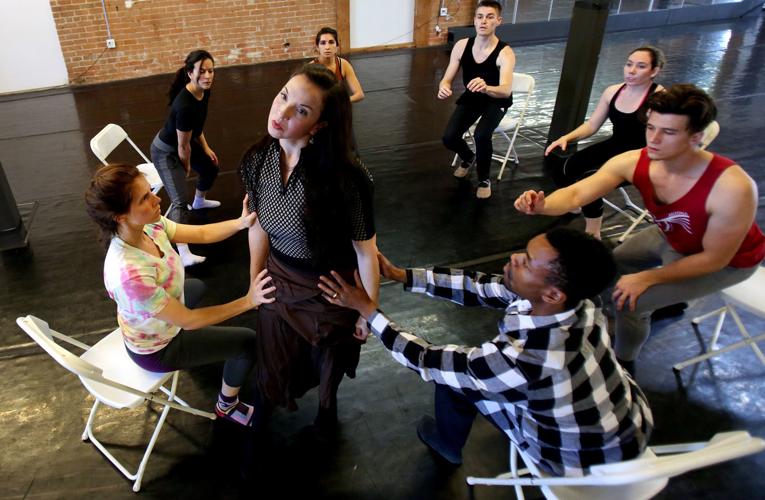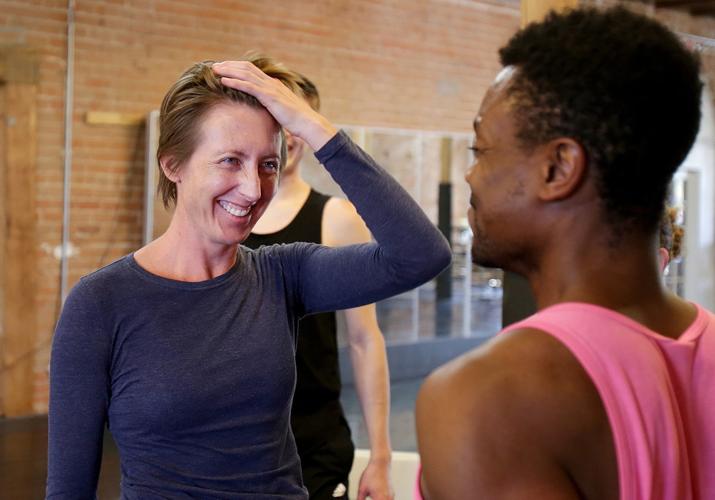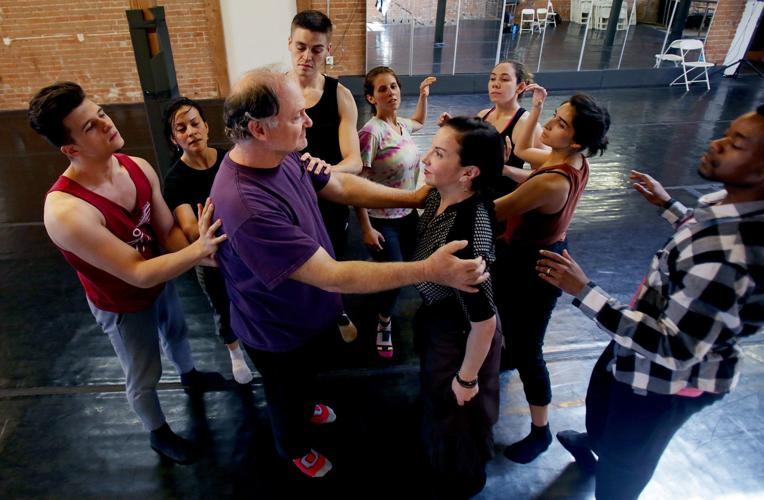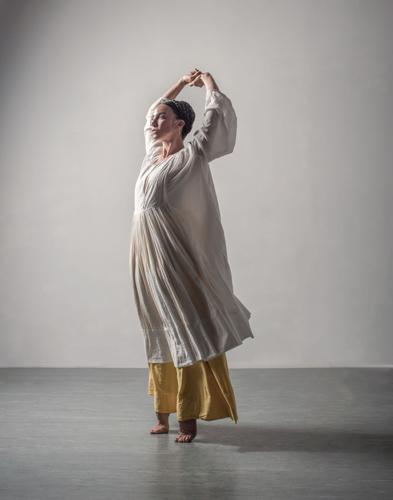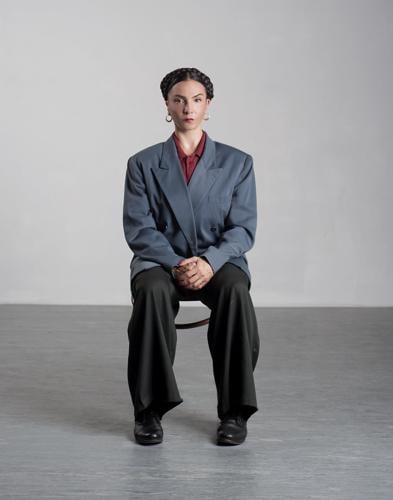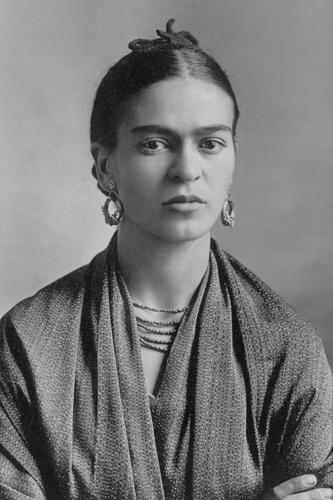Frida Kahlo had lots to say.
She said it in her diaries, her letters and her paintings.
Artifact Dance Project has a lot to say about Kahlo; they are doing it through original dance and music.
“Frida,” a collaboration between Artifact and Lane Harmon and Roger King, who wrote the bulk of the songs, opens March 22.
A dance about the artist Kahlo is not something choreographer and Artifact co-founder Ashley Bowman had ever considered.
“I would never have chosen her as a topic because I find her so iconic and so embedded in our culture,” says Bowman. “She’s a big one to take on.”
But Harmon and King were not intimidated by Kahlo, who is revered in her home country of Mexico and around the world.

“I find her so iconic and so embedded in our culture,” choreographer and Artifact co-founder Ashley Bowman says of Mexican painter Frida Kahlo: “She’s a big one to take on.”
“I was inspired by her artistry and her personal story of both pain and hope and ways of triumphing over that,” says Harmon about Kahlo.
“I think her story could resonate. ... I was so drawn to her power of the human spirit.”
Harmon and King had performed with Artifact before, though they had never done a collaboration that included original music written for the dance.
And they were determined to sell Artifact on the idea of doing just that for “Frida.”
The two began to write songs about Kahlo. A year ago, when they had around seven of them done, they approached Bowman.
She was reluctant.
“In that meeting I said, ‘Well, I’m interested, but the only way I can do it is if Claire Hancock takes on the role. We need an artist who has a deep well.’”
Hancock said yes.

Songwriters Lane Harmon and Roger King sold the Artifact Dance Project on the idea of doing “Frida.” Claire Hancock, standing, says, “It was daunting when I said yes, and it’s still daunting.”
Saying yes was easy. Taking Kahlo’s persona on, and interpreting moments in her life, not so much.
“It was daunting when I said yes, and it’s still daunting,” says Hancock, a co-founder of Artifact with Bowman.
“When I start expressing (Kahlo), I feel it is so against my instincts. She is a pistol. There are parts of me that are a pistol, but I have a bashfulness, a maternal nature.”
But she has found the artist through the lyrics and music by Harmon and King, and Bowman’s choreography.
“The music and dance are the map to animate Frida,” Hancock says.
Bowman did deep research in preparation for the production. Kahlo, who died in 1954, had a rich and varied life: Her art, her many lovers, her revolutionary politics, the pain she lived with constantly thanks to childhood polio and a bus accident when she was 18, and her tumultuous marriages to artist Diego Rivera.
Bowman knew there was no way she was going to fit that all into a dance performance.

Claire Hancock and David Alexander Johnson rehearse the roles of Frida Kahlo and Diego Rivera. Their interior lives are interpreted by the cast of dancers. Each dance is prefaced by a brief extract about Kahlo or a piece of her art to give context.
“A lot of details can’t be communicated with dance,” she says. “We have to pick more general topics so dance can interpret them. I’m taking big-picture ideas about Frida, and more psychological concepts, which dance can successfully interpret.”
And, like Hancock, the music is an important guide.
“The music is completely inspired by the life of Frida and her marriage,” says Bowman. “The music is almost like a script.”
The story will concentrate on the last decade of Kahlo’s life, when her body was failing her, her husband continued his philandering ways (though Khalo did, as well) and her art began to get attention.
In addition to Hancock, there are 10 dancers in the cast, and actor David Alexander Johnston, who plays Rivera.
Originally, Bowman thought she would have the dancers represent the people in Kahlo’s life.
“But there are so many people in her life,” she says. Among them: the Russian revolutionary Leon Trotsky, the actress Josephine Baker and artist Georgia O’Keeffe — said to be among Kahlo’s lovers.
“It would be an endless cast,” says Bowman.
Instead of people, she decided the dancers would interpret Rivera and Kahlo’s interior life.
“The dancers always represent what’s going on in Frida and Diego’s minds, their thoughts and emotions,” she says. “Their soul and spirit.”
Each dance will be prefaced by a snippet of Kahlo’s history, a piece of her art, to give context, says Bowman.

Dancers rehearse as choreographer Ashley Bowman, second from bottom, leads through new steps for the Artifact Dance Project’s performance of “Frida” on March 14, 2018, at the dance studio, 700 E. Toole Ave. in Tucson, Ariz. Frida runs March 22-25 at the Stevie Eller Dance Theatre on the University of Arizona campus.
Her goal, she says, is to make the dance accessible.
“The projections will be educational and connected to and precede the dances,” she says.
“By the end of the show, I hope people who didn’t know a lot about her leave knowing more.”
If you go:
What: Premiere of Artifact Dance Project's "Frida."
When: 7:30 p.m., Thursday, March 22, through Saturday, March 24; 2 p.m. Sunday, March 25.
Where: Stevie Eller Dance Theatre, 1737 E. University Blvd. on the University of Arizona campus.
Tickets: $31 through artifactdanceproject.org or 235-7638.
Run time: About 2 hours, with one intermission.


